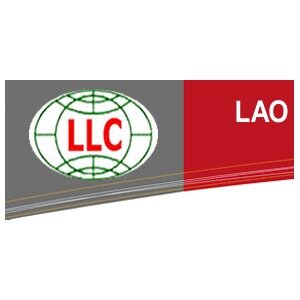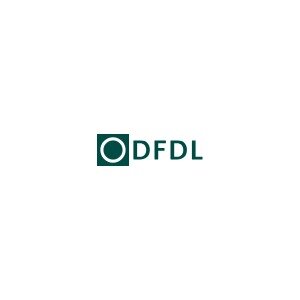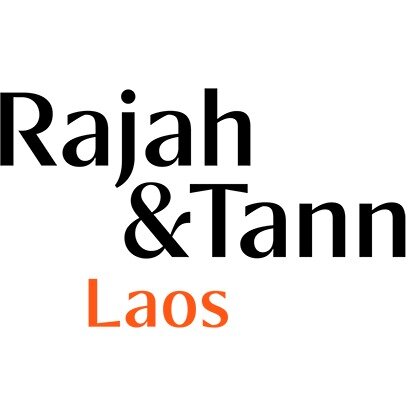Best Project Finance Lawyers in Laos
Share your needs with us, get contacted by law firms.
Free. Takes 2 min.
Or refine your search by selecting a city:
List of the best lawyers in Laos
About Project Finance Law in Laos
Project finance is a method of financing large-scale infrastructure or industrial projects by relying mainly on the project's future cash flow for repayment, with the project's assets and interests held as collateral. In Laos, project finance is especially relevant for energy, mining, transport, and telecommunications projects. The government of Laos actively encourages foreign investment in these sectors, and project finance structures are becoming more common as the country modernizes its infrastructure and pursues sustainable economic growth.
Why You May Need a Lawyer
There are several reasons why individuals or businesses involved in project finance in Laos may require legal advice. Common situations include:
- Negotiating and drafting complex financing agreements between multiple parties, which often include lenders, project sponsors, and government entities.
- Navigating regulatory approvals and licensing requirements specific to large projects in sectors like energy or mining.
- Addressing land use, concession agreements, and environmental impact assessment obligations.
- Structuring joint ventures or partnerships between international and local entities.
- Ensuring compliance with both local and international legal standards, such as anti-bribery and anti-corruption rules.
- Mitigating risks by identifying and allocating risks among different stakeholders.
- Resolving disputes that may arise during the lifecycle of a project, from inception to operation and eventual divestment or restructuring.
Local Laws Overview
Project finance in Laos is governed by a mix of local statutes, government decrees, and sector-specific regulations. Key aspects include:
- The Investment Promotion Law, which provides incentives and outlines procedures for foreign and domestic investment.
- The Law on Public-Private Partnerships, which establishes frameworks for cooperation between the government and private entities.
- Licensing and approval processes for projects involving natural resources, energy, and infrastructure, often requiring multiple levels of governmental consent.
- Foreign exchange regulations impacting cross-border financing, currency hedging, and repatriation of profits.
- Security interests, including how to secure loans through mortgages or pledges on project assets and revenues.
- Environmental and social regulations, such as Environmental Impact Assessments, which are mandatory for most large projects.
- Dispute resolution mechanisms, including options for arbitration and recourse to local courts.
Frequently Asked Questions
What types of projects in Laos typically use project finance?
Project finance is most commonly used for large infrastructure projects, such as hydropower plants, solar farms, highways, mining, telecommunications, and airport developments.
Can foreign investors participate in project finance deals in Laos?
Yes, foreign investors are encouraged to participate and are often key players in financing, constructing, or operating major projects in Laos.
How are project finance agreements structured in Laos?
These typically involve special purpose vehicles (SPVs) set up for the project, with financing secured against the project's projected cash flows and assets.
What are the main legal risks in project finance in Laos?
Key risks include changes in government policy, difficulties in land acquisition, regulatory uncertainty, foreign exchange controls, and environmental compliance requirements.
What government approvals do I need for a project finance deal?
Approvals often include investment certificates, sectoral licenses, environmental permits, and sometimes special concessions from government authorities.
How are security interests created and perfected for project finance?
Security interests are typically created through mortgages, pledges, and assignments, and they must be registered with the relevant authorities to be enforceable.
Are there restrictions on repatriation of profits from project-financed ventures?
While Laos permits the repatriation of profits, investors must comply with local tax and foreign exchange rules, and get relevant approvals from the central bank as necessary.
Is international arbitration available as a dispute resolution method?
Yes, many project finance contracts include arbitration clauses, often referring disputes to international arbitration centers outside of Laos, subject to government consent.
Do projects require Environmental Impact Assessments?
Most large-scale projects require an Environmental Impact Assessment (EIA) by law, and approval of the EIA is generally necessary before project commencement.
What role do local partners play in project finance deals?
Local partners can facilitate compliance with Lao laws, help manage relations with authorities, and are often required for obtaining land rights or sector-specific approvals.
Additional Resources
The following resources, governmental bodies, and organizations can provide information or support regarding project finance in Laos:
- The Ministry of Planning and Investment - the primary agency for investment approval and promotion.
- Bank of the Lao PDR - responsible for foreign exchange controls and banking supervision.
- The Ministry of Energy and Mines - oversees energy and mining projects.
- The Department of Economic Arbitration within the Ministry of Justice - for dispute resolution services.
- Investment Promotion Department - provides guidelines on incentives and regulatory requirements for investors.
- Professional legal associations and chambers of commerce, such as the Lao Bar Association or foreign chambers.
- International organizations such as the World Bank and Asian Development Bank, which often publish reports on the business environment and investment opportunities in Laos.
Next Steps
If you are considering participating in a project finance venture in Laos, or if you are already involved and require legal guidance, consider the following steps:
- Identify the scope and sector of your project to determine relevant legal requirements and authorities.
- Consult with a qualified Lao lawyer or law firm experienced in project finance and cross-border transactions.
- Gather documentation related to your investment, ownership structure, financing plan, and intended project operations.
- Request a legal due diligence review to assess compliance risks and potential obstacles.
- Engage with relevant government agencies early in the process to understand approval timelines and regulatory expectations.
- Negotiate and structure contracts with guidance from your legal counsel to ensure optimal risk allocation and enforceability.
- Maintain ongoing communication with your legal advisor as the project progresses, as compliance requirements and regulations may change over time.
Lawzana helps you find the best lawyers and law firms in Laos through a curated and pre-screened list of qualified legal professionals. Our platform offers rankings and detailed profiles of attorneys and law firms, allowing you to compare based on practice areas, including Project Finance, experience, and client feedback.
Each profile includes a description of the firm's areas of practice, client reviews, team members and partners, year of establishment, spoken languages, office locations, contact information, social media presence, and any published articles or resources. Most firms on our platform speak English and are experienced in both local and international legal matters.
Get a quote from top-rated law firms in Laos — quickly, securely, and without unnecessary hassle.
Disclaimer:
The information provided on this page is for general informational purposes only and does not constitute legal advice. While we strive to ensure the accuracy and relevance of the content, legal information may change over time, and interpretations of the law can vary. You should always consult with a qualified legal professional for advice specific to your situation.
We disclaim all liability for actions taken or not taken based on the content of this page. If you believe any information is incorrect or outdated, please contact us, and we will review and update it where appropriate.
Browse project finance law firms by city in Laos
Refine your search by selecting a city.












